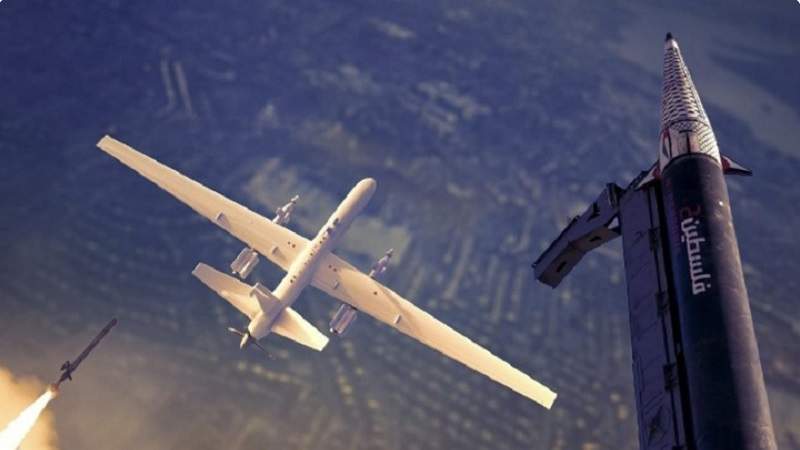From the Red Sea to Occupied Palestine: Yemen Redraws the Map of Power and Influence in the Region

Middle East: Experts and politicians say that Yemen’s current confrontation has reshaped the contours of power and strategic capability across the region — stretching from the Red Sea, through vital maritime passages, to the very heart of what was once considered the stronghold of the Zionist entity’s influence. Developments show that the pressure and deterrence tools employed by the Yemeni Armed Forces and Ansarullah have triggered political, economic, and military reverberations on both regional and international levels. This raises a direct question about the ability of the entity to preserve its traditional dominance over regional maritime trade and navigation routes.
Adel Shadeed, an expert on Zionist affairs, told Al-Masirah TV on Thursday that what has unfolded over the past two years reflects a strategic, transformative decision by the Yemeni people and their Armed Forces under Ansarullah’s leadership.
“This decision was unimaginable two years ago,” he said, “but it is now a reality that is repositioning the region in ways fundamentally different from what was set since the Sykes-Picot agreements, the British Mandate, and even the role imposed by the Zionist entity on itself as the ‘regional policeman’ controlling land, sea, and air routes.”
He noted that the economic impact on the Zionist entity’s economy has become significant, despite its attempts to obscure the fallout.
“Closing major sea lanes or disrupting ports such as Umm al-Rashrash (Eilat) quickly affects the availability of certain goods and raises transport and insurance costs,” he added, “which drives up prices of items like meat, cars, and heavy goods due to reliance on longer, more expensive routes.”
Shadeed further pointed out that Yemen’s targeting has influenced international companies: the spike in insurance costs has forced some firms to reconsider or suspend trade dealings with the Zionist entity — a form of partial boycott or economic blockade if the confrontation persists and escalates.
On the political front, Shadeed argued that this shift opens a new window for strengthening the Palestinian, Arab, and Islamic national discourse, as the Zionist entity no longer holds the same absolute immunity and unchecked dominance it has enjoyed since 1948 without facing meaningful regional pushback.
Meanwhile, Fouad al-Shami, professor of modern and contemporary history, told Al-Masirah on Thursday that Ansarullah’s breakthrough of this long-standing status quo amounted to a strategic shock. The Red Sea had long been viewed as an American-protected zone, where no force was allowed to obstruct shipping lanes. But Yemen’s ability to assert itself and control a vital strait through which ships transit to multiple ports has overturned the balance.
Al-Shami added that this development unsettled the Zionist entity’s supporters, because what is happening is not a temporary threat but a behavioral shift: Yemen did not settle for rhetorical threats — it acted and delivered practically what many Arab states in the past did not.
He noted that international forces, including the United States, attempted to counter Yemen’s operations, but failed to achieve a permanent disruption of Yemeni activity in the Red Sea.
According to him, Yemen’s influence has now extended further into the Arabian Sea and the Indian Ocean, deepening concerns among states and interests accustomed to unrestricted freedom of navigation in those waters.
Practical and Strategic Implications
The significance of these developments appears across several dimensions:
Economic impact — both direct and indirect — on supply chains and regional/international markets.
Symbolic and political impact — breaking the “immunity” once granted to the Zionist entity, giving momentum to the resistance narrative and Arab-Palestinian solidarity.
Fragmentation of options — as the entity’s allies and trade partners face rising insurance and transport costs, which could prompt commercial and political repositioning in the near and medium term.
Experts conclude that Yemen’s operations and stances have introduced transformative shifts in the regional balance of power, granting an unexpected actor the ability to move equations through maritime, economic, and military tools.
As the confrontation continues, its strategic investment extends beyond immediate material effects to the redrawing of commercial and political alliances in the region.
The central question remains: will regional and international actors absorb this shift by halting aggression, lifting the siege on Gaza, and refraining from interference in Yemen — thereby restoring balance? Or is the region headed toward a prolonged phase of strategic reordering, in which anti-hegemonic dynamics weaken US-Israeli dominance across the Middle East?
#Yemen #US #Israel about 2 hours-
07:01
Palestinian sources: Israeli enemy vehicles open fire near Sheikh Radwan pool northwest of Gaza City
07:00
Lebanese sources: Israeli enemy airstrikes target Nabatieh in southern Lebanon
07:00
Tunisia: Protest in front of the US embassy in Tunis condemning the attack on the Freedom Flotilla and ongoing aggression on Gaza
07:00
Palestinian sources: Israeli enemy warships shell areas west of Gaza City
06:59
Spanish media: Spain’s public prosecutor includes the seizure of the global Freedom Flotilla in its investigation of “Israeli” crimes in Gaza





